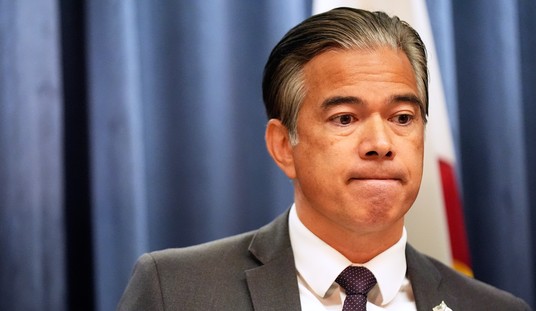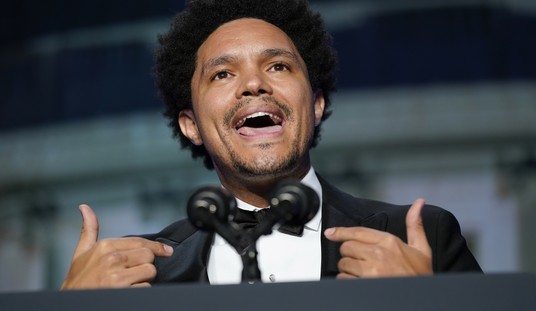Democrats who hoped to sell the benefits of ObamaCare to a highly antagonized electorate may find that one of their arguments has proven much weaker than expected. The Obama administration front-loaded what it saw as the most popular portions of the bill in order to get people to realize its benefits before the midterm elections, and the crown jewel of that effort was the program that provided subsidized gap insurance for people with pre-existing conditions. It certainly impressed the people who signed up for it, but that number has turned out to be embarrassingly small:
Titus is one of what some officials say has been an unexpectedly small number of people to sign up for the program, which was touted by the Obama administration as an early benefit of the new health overhaul law. It began last month in 30 states with the expectation that many thousands of uninsured people would apply for the opportunity to get comprehensive coverage regardless of their health status. But that hasn’t been the case.
About 3,600 people have applied and about 1,200 have been approved so far in state plans that started in the beginning of July, according to data from the states and federal government. Officials say the new plans, although a better deal than anything comparable on the private market, still may be unaffordable for many people. Eligibility requirements are another possible barrier. And states have had little time to publicize the plans.
It’s too soon to gauge the program’s impact. The plans won’t be up and running in all the states until September. But some officials are surprised.
“It’s early, but thus far interest in the program is lower than we expected,” said Michael Keough, executive director of the North Carolina Health Insurance Risk Pool, which started July 1. As of Tuesday, 258 people had applied and 121 had been approved.
Remember the debate over ObamaCare and the absolute moral imperative of now to intervene on behalf of those with pre-existing conditions? Many pointed out that it didn’t take a massive overhaul to accomplish that task, but the White House and Democrats in Congress used these Americans as poster children for ObamaCare. As it turns out, they’re not terribly impressed with the results. By September, the program may have as many as 5,000 people enrolled in it — quite a low number for a program that will cost us trillions over the next two decades.
Before these numbers came out, Byron York wrote that Democrats will have a hard time defending their ObamaCare votes:
In passing the national health care bill, you accomplished something your party dreamed of for decades. It was your most important vote, and now is the time to take credit for it.
Except it’s not.
Recently a number of top Democratic strategists conducted focus groups in Las Vegas, Charlotte, Philadelphia and St. Louis. They also conducted a national poll of 1,000 likely voters and an online poll of 2,000 more likely voters. They wanted to measure the public’s feelings about Obamacare and help Democrats make an effective case for the bill they passed in March.
The researchers found what they call a “challenging environment,” which is a nicer way of saying “disaster in the making.” Voters simply aren’t buying the Democratic case that health care reform will insure more than 30 million currently uninsured people and save money at the same time. And when they think about their own health care, people worry that reform will mean less, not more, availability of care, and at a higher cost.
Faced with that bad news, the pollsters came up with several recommendations for Democratic candidates. When talking about Obamacare, Democrats should “keep claims small and credible.” They should promise to “improve” the law. They should avoid talking about policy and stick to “personal stories” of people who will benefit from Obamacare. And above all, the pollsters advise, “don’t say the law will reduce costs and deficit.”
It’s a stunning about-face for a party that saw national health care as its signature accomplishment. “This is the first time we’ve seen from Democrats that they clearly understand they have a serious problem in terms of selling this legislation,” says Republican pollster David Winston.
Thirty million? It may not even ensure thirty thousand by the time the elections roll around, despite the White House’s gaming of the system to extract the most political advantage they can get. In fact, the program only attempted to get to just 5% of these uninsured anyway:
The Congressional Budget Office has estimated that as many as four million uninsured Americans would be eligible and that 200,000 would actually be enrolled by 2013. That projection assumed some people would not be interested or would not be able to afford the premiums.
“Some people”? The program only anticipated being useful to 5% of the uninsured with pre-existing conditions. Shouldn’t that have been a red flag? And so far, it has resulted in a microscopic amount of enrollments compared to Congressional projections.
No wonder Democrats won’t be able to sell it in November. Who’s going to go on the stump and brag about a 0.125% success rate?








Join the conversation as a VIP Member